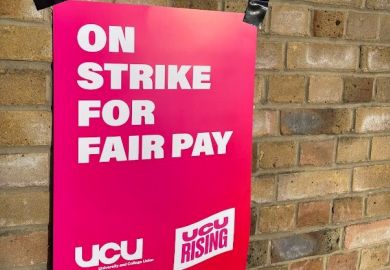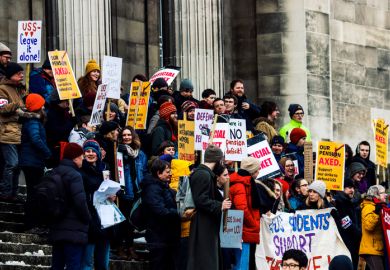The news out of Cardiff, Durham, Newcastle and Kent in the past week or so is as predictable as it is depressing. Around 1,000 higher education posts put at risk of redundancy, in universities that are usually described as “world-leading”. Add these numbers to the others from across the sector, and you’ll find somewhere in the region of 10,000 jobs currently at risk. It is a generational crisis facing our sector.
It is also a wholly manufactured crisis, one that results from a deliberate attempt to wreck our profession. Higher education has been poorly served by a succession of government ministers, but during the dying days of the last Tory government, it became evident that destroying the sector was seen by ministers as a battle worth fighting as part of the broader culture wars. Not only did it serve the Conservative Party’s long-term interests to undermine education given that more highly educated voters tend to skew left, universities also came to symbolise all that the party stood against: “woke” sanctuaries for immigrants and other marginalised minorities.
When that government was given its marching orders in July 2024, many of us heaved a sigh of relief. Whatever our views of Keir Starmer, there was optimism that at least his government wasn’t deliberately setting out to destroy higher education. But while the lack of outright hostility is welcome, it has seemingly been replaced by something approaching indifference as the gain to English universities from the small permitted hike in tuition fees has been more than offset by the increase in employer national insurance contributions across the UK.
While we cannot absolve university managers of responsibility, the crisis in higher education is primarily a political one and can only be resolved by the Westminster government. Friendly noises and good intentions aren’t enough; the sector needed Labour to intervene on day one, and that need has only got more pressing as each week passes.
As a member of the University and College Union’s National Executive Committee (NEC), I know that our staff have been hard at work lobbying ministers and civil servants to push higher education up the list of priorities. But I also know that this vital work is being made much more difficult by the endless pantomime that is the union’s internal politics.
In December of last year, an emergency meeting of the union’s Higher Education Committee (HEC) was called, not to address the sector-wide redundancies but instead to discuss the 2023-24 pay claim. During that meeting, a motion was tabled calling on UCU to ballot its members on taking strike action in pursuit of a 5.5 per cent pay rise. Many of us present at that meeting protested and begged our fellow HEC members to see sense, but to no avail. The motion passed, and UCU is now in the process of organising an industrial action ballot over pay.
I understand that fighting for better pay is central to what a trade union does. I want a better pay deal for our members, who deserve it. But I also understand that the likelihood of getting a better pay deal at this particular historical moment is next to zero. Admitting this isn’t defeatism or talking down our union; it is simply a matter of living in the real world.
As many as one in every seven UCU members employed in higher education could be at risk of redundancy this year. Moreover, if they are laid off, they know that there may not be jobs at other institutions to apply for.
It was Aneurin Bevan who said that “the language of priorities is the religion of socialism”. Every time UCU’s democratic structures decide to instruct staff to act on a particular issue, it pushes that issue up the priority list. The union’s resources are shifted around, and some other issue gets pushed down the list. To instruct staff to ballot on an increased pay offer in the current circumstances is at best misguided and at worst entirely reckless.
As it happens, UCU members will receive an entirely different ballot paper in the post this week. Elections to the union’s NEC are taking place this month, and I am among a number of candidates who are standing for election. We can all express frustration at the tactical missteps that have been taken by the union over the past few years, but these are not accidents. The union’s leadership is democratically elected, and if you’re as unhappy as I am about our current direction, then please – pick up that ballot paper, and do something about it.
Dyfrig Jones is a senior lecturer in film at Bangor University, a member of the University and College Union’s National Executive Committee and a candidate to be UCU vice-president.
Register to continue
Why register?
- Registration is free and only takes a moment
- Once registered, you can read 3 articles a month
- Sign up for our newsletter
Subscribe
Or subscribe for unlimited access to:
- Unlimited access to news, views, insights & reviews
- Digital editions
- Digital access to THE’s university and college rankings analysis
Already registered or a current subscriber?







